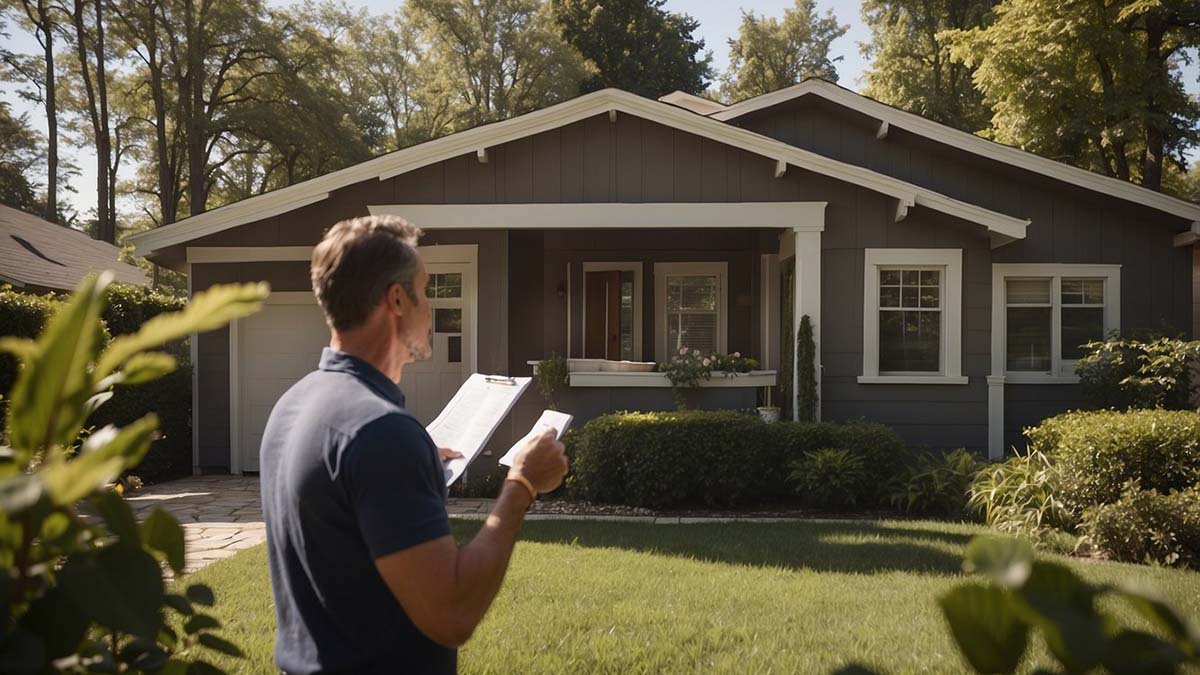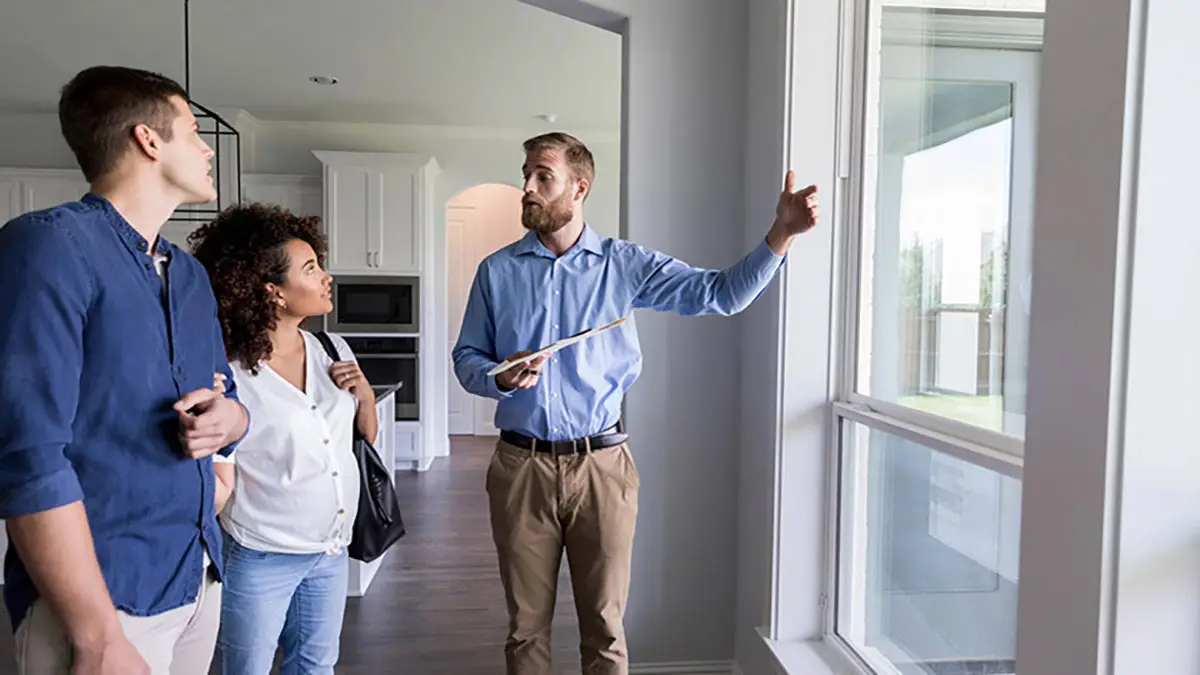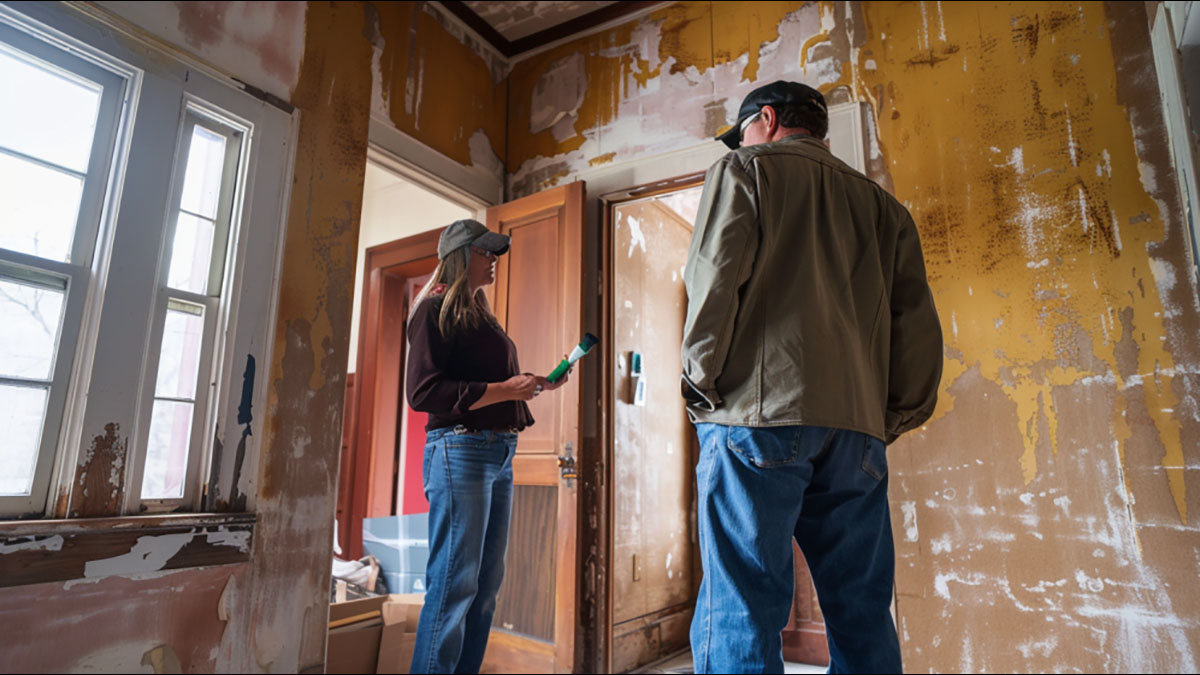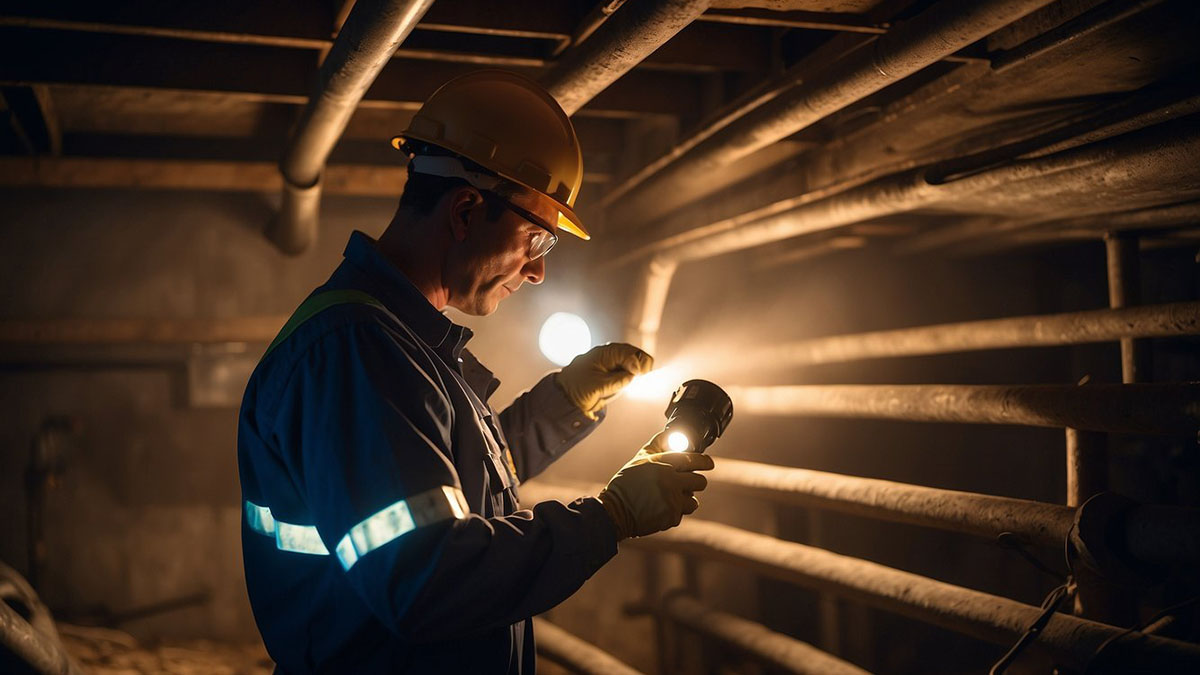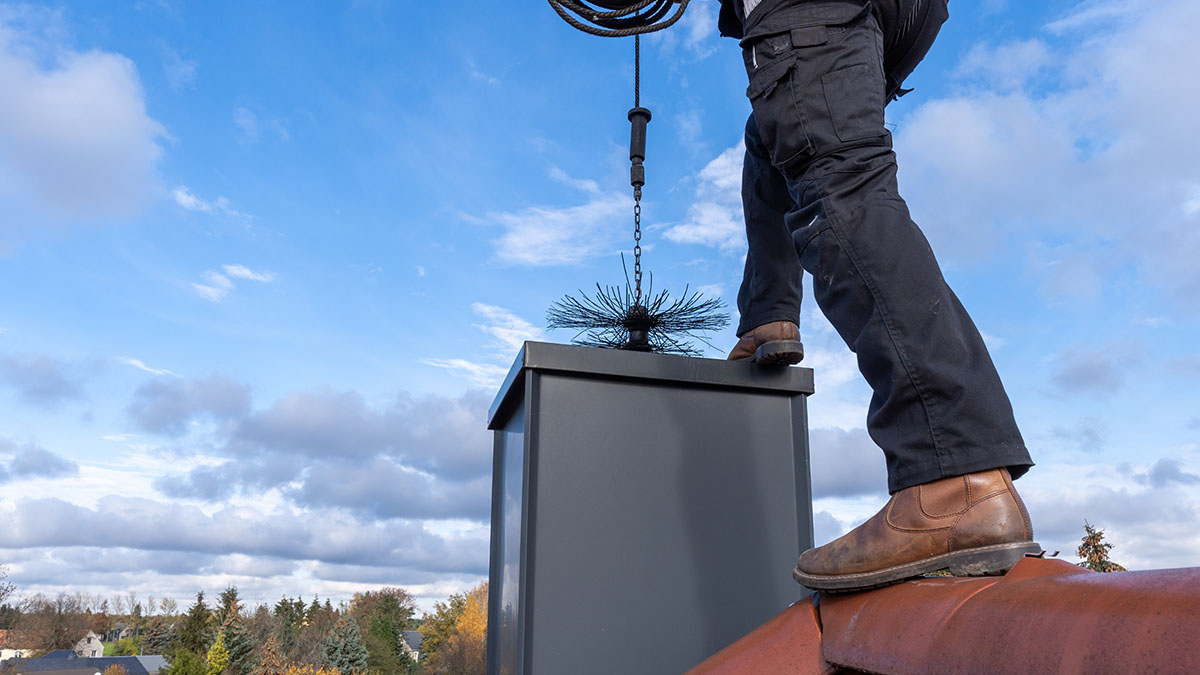If you are planning to renovate your home, it is highly recommended to have a home inspection before renovation begins.
Home renovation is an exhilarating endeavor revitalizing your living space through aesthetic updates or enhanced functionality. However, it’s vital to approach it carefully and consider the significant undertaking involved.
Here are some reasons why a home inspection service is essential before a renovation:
- A home inspection can identify any issues or concerns with your home before the renovation begins.
- An inspection can help you prioritize which repairs or renovations are most important.
- An inspection can help you avoid unexpected costs and delays during renovation.
- An inspection can help you ensure that your renovation plans are safe and up to code.
- An inspection can help you identify any potential hazards, such as asbestos or lead paint, that may need to be addressed before the renovation begins.
It is also recommended to have a home inspection after the renovation is complete. This can help ensure that the work was done properly and up to code and can give you peace of mind knowing that your home is safe and in good condition.
| Key Takeaways |
|---|
| Home renovation is important for maintaining property value and functionality. |
| A home renovation inspection checklist can identify potential issues, saving you time and money later. |
| Hire a professional inspector for expertise in identifying hidden problems. |
| Different types of inspections can be conducted before renovation. |
| Inspections help identify hazards, uncover hidden damages, and understand renovation needs. |
| Prepare for the inspection by ensuring access, gathering documents, and communicating concerns. |
| Use a detailed checklist to inspect electrical systems, plumbing, roofing, foundation, etc. |
| Inspection results can affect renovation plans and may require changes in scope. |
| Unexpected repairs or upgrades impact the renovation budget and timeline. |
| Allocate extra funds and be prepared for delays to ensure a successful renovation project. |
Why a Home Inspection Before Starting Renovations is Necessary
Home renovation is essential for maintaining property value, functionality, and comfort. By preserving the resale potential, a well-maintained home ensures long-term investment benefits. Whether updating, adapting, or enhancing, there are various motivations to embark on a renovation journey.
For example, it can help improve energy efficiency by upgrading insulation or installing new windows. It can also increase functionality by creating additional living space or updating outdated electrical or plumbing features.
The Significance of Home Inspection Before Renovation
A thorough property assessment before renovations is vital. A professional home inspection service, including electrical evaluation, is invaluable. Skilled inspectors thoroughly examine electrical systems, plumbing, roofing, foundation, and more, identifying necessary pre-renovation fixes.
Before the renovation, inspecting the electrical service is crucial to identify necessary repairs or upgrades and enhance safety. Addressing issues like outdated wiring or overloaded circuits in advance prevents electrical problems, ensuring a functional and safe system during renovations.
Related reading: 21 Reasons Why Home Inspections Are Important
Brief Overview Of What The Outline Will Cover
The outline will encompass the essentials of pre-renovation inspections, including their scope and impact on renovation plans. It emphasizes the importance of hiring a professional inspector and offers a comprehensive checklist for conducting thorough pre-renovation inspections.
We’ll delve into how inspection results impact the renovation budget and timeline, emphasizing the importance of documenting findings. Let’s now explore the significance of home renovation and pre-renovation inspections in detail.

Understanding Home Inspection Before Renovation
A home inspection is a visual examination of the overall condition of a property, including its systems and components. The purpose of a home inspection before the renovation is to identify any existing issues that need to be addressed before starting any renovation work.
The inspection covers roofing, plumbing, electrical systems, foundation, and more. A comprehensive home inspection report aids homeowners in efficient renovation project planning. The detailed report offers valuable insights into the property’s condition.
The report summarizes findings, recommendations, and areas needing attention or repairs. It provides a comprehensive understanding of necessary fixes and priorities. This detailed report enables informed decisions and prioritization of renovations based on the inspector’s recommendations.
What is the typical expense for a home inspection in your state? Explore our complimentary Home Inspection Cost Calculator and FREE resource How Much a Home Inspection Costs.
Importance of Hiring a Professional Inspector for the Job
Hiring professional building inspectors is crucial for identifying potential issues not visible to untrained eyes. With their expertise in building codes, city regulations, construction materials, and safety standards, they ensure compliance with city inspection requirements.
When hiring an inspector for your pre-renovation home inspection, be sure they are licensed and insured in your state or province. An experienced inspector will provide a detailed report that includes their findings from the inspection, including observations made during the city inspection.
Types of Inspections That Can Be Done Before Renovation
Before renovations, various inspections, including the inspection process, assess your property. The general inspection process evaluates the structure and systems, including roof integrity, ventilation, water supply, electrical analysis, heating equipment, sewage management, and foundation condition.
Specialized inspections focus on specific areas like electrical or plumbing systems and may require a specialist inspector. As part of the inspection process, these inspections ensure the proper functioning and safety of specific components within the property.
Hiring a professional inspector is essential for obtaining vital information on necessary repairs, identifying hazards, and assisting with efficient renovation planning. Various types of inspections can be conducted to cater to the specific needs of your property.
For further details, you can refer to the following related article: What inspections are typically required for new construction or renovation projects?
Benefits of Home Inspection Before Renovation
One of the key benefits of having a professional home inspection before carrying out any renovation work is that it helps identify potential hazards and safety issues in the house. For instance, an inspector can check for mold or asbestos, which pose significant health risks if left unchecked.
Electrical issues are also common safety issues that can be identified during a professional home inspection. An inspector will check wiring, electrical panels, and electrical outlets to ensure they are up to code and not posing any danger.
Ensuring safety by addressing hazardous conditions before renovations is crucial. Swiftly resolving these hazards prevents accidents during the renovation process. Professional home inspections by experienced inspectors are essential for identifying hidden dangers that untrained individuals may overlook.
Uncovering Hidden Damages That May Be Expensive to Fix Later On
Another significant benefit of having a home inspection before the renovation is uncovering hidden damages which may be expensive to fix later on. Some damages may not be visible or identifiable with the naked eye, but an inspector can identify them using different tools and techniques.
By identifying damages early, homeowners can plan their renovation budget accordingly and prepare for necessary repairs or upgrades. Despite appearing as an additional cost, a home inspection can save money in the long run by detecting hidden problems ahead of time.
Providing a Clear Understanding of What Needs To Be Done During Renovation
When planning renovations, homeowners can easily get carried away with impractical ideas. A professional home inspector offers valuable insights on feasible changes within space limitations, preventing costly mistakes.
Building inspectors provide valuable suggestions for enhancing your living space beyond the initial renovation plans. A comprehensive home inspection offers expert advice on optimizing your space and preventing costly repairs and modifications from impractical or poorly planned ideas.

Home Inspection Checklist Before Renovation
Now that we understand the significance of a pre-renovation home inspection let’s explore the essential components of a comprehensive inspection checklist.
Proper preparation ensures a thorough examination of all checklist areas, identifying potential issues and hazards that may affect the renovation plan and budget. Taking proactive measures based on the inspection enables effective resolution of these concerns.
How to Prepare for a Home Inspection Before Renovation
To prepare for the inspection, declutter, remove obstacles, and ensure access to walls and storage spaces. Turn on utilities like water heaters and electricity, and gather important documents such as building permits and warranty information from previous renovations or repairs.
These documents can provide valuable insights into what has been done in the past and what needs attention during this renovation. It is important to communicate with the inspector before they arrive about any specific concerns or questions you may have regarding your property.
Detailed Checklist on What Should be Inspected
A comprehensive home inspection checklist covers electrical systems (wiring, circuit breakers), plumbing (pipes, water pressure), roofing materials (shingles, gutters), mechanical systems (heating, cooling), foundation issues (building cracks), windows, doors, appliances, and insulation materials.
The inspector uses specialized tools like moisture meters and infrared cameras to assess each area, aiming to uncover existing issues and anticipate potential future problems, including those related to the mechanical system, that may arise during the renovation process.
Note: It’s important that the inspector may recommend additional inspections by specialists in certain areas, such as roofers or electricians, if they find any major concerns. In any case, it is better to be safe than sorry and address any issues before remodeling.
Importance of Documenting Findings During the Inspection
During the inspection, it is important for the inspector to document all their findings thoroughly. This includes taking pictures and notes about each area inspected and highlighting areas of concern or potential hazards.
The documentation serves as evidence of the house’s current condition and aids in creating a clear renovation plan. It is useful when working with contractors and insurance companies when determining insurance rates, policies, and coverage for any potential issues during or after renovations.
It can serve as a reference point for what was found during the inspection versus what was done during renovations. A home inspection checklist is an essential tool that should not be overlooked before starting any home renovation project.
It helps identify potential issues, prepares homeowners for unexpected costs, and ensures work can be carried out safely and efficiently. Remember, prevention is always better than cure!
How Home Inspection Results Affect Renovation Plans
A comprehensive home inspection report has a significant impact on your renovation plans. It identifies crucial issues to address before starting the project, ensuring the desired outcome and avoiding unexpected expenses.
The inspection report will give you an idea of any repairs or upgrades that should be completed before renovating. For instance, your home inspector may identify faulty electrical wiring in your house, which can lead to electrical fires.
This means that the necessary repairs must be made before starting any major renovations in your home. In some cases, unexpected findings during an inspection may cause a change in renovation plans altogether.
For instance, if a deteriorating foundation is found during a kitchen remodeling inspection, it may require halting planned renovations until a structural engineer evaluates the damage and suggests repair solutions. These adjustments can affect the project’s budget and completion timeline.
How Inspection Results Impact Budget and Timeline
Unexpected repairs or upgrades identified during home inspections can significantly affect the budget and renovation timeline. Addressing these issues takes time and money away from initial renovation plans but is necessary to ensure safety and quality work.
The cost implications are two-fold: First, urgent repairs require immediate attention, which can increase tool labor costs as work is done when professional contractors are busy with other improvement projects. Second, additional expenses for hiring specialized professionals such as structural engineers or electricians often arise from unexpected discoveries.
In addition to increased costs due to unexpected repairs or upgrades needed following inspections, delays in project completion can also result. Contractors may need to reschedule or rework their initial plans, which can take time and delay the renovation project’s completion.
Budgeting for potential unexpected repairs or upgrades is important by setting aside extra funds for any necessary work identified during home inspections. This way, your renovation project will have the flexibility to address any discovered issues without derailing timelines or financial budgets.
Home Inspection Before Renovation FAQs
What is the purpose of a home inspection before the renovation?
A pre-renovation home inspection assesses the property’s condition, identifies repair needs, and provides a comprehensive overview. It helps homeowners prioritize and allocate resources accurately, ensuring an informed and well-planned renovation project.
Who should conduct the home inspection before a renovation?
Hire a qualified home inspector with expertise in residential properties for a thorough pre-renovation inspection. Look for certified professionals who adhere to industry standards and ethics. Their unbiased evaluation provides reliable information for informed renovation planning.
Can a home inspection before renovation help identify potential hazards (e.g., lead paint, asbestos)?
A pre-renovation inspection detects hazardous materials like lead paint and asbestos. Homeowners are informed about their presence, ensuring safety for all. Experts guide on proper handling and disposal if found.
Conclusion
Before renovating, a thorough inspection reveals unnoticed issues, allowing for proper planning and a smoother renovation process. Home inspections offer numerous benefits, including identifying hazards and safety issues.
They also uncover hidden damages that may be expensive to fix later on. Additionally, home inspections clearly understand what needs to be done during renovation.
A professional inspector can ensure that all areas of the house, including water damage, electrical wires, and natural light, are properly inspected and documented, enabling you to make informed renovation decisions.
Home inspection results can impact renovation plans because unexpected repairs or modifications can affect the budget and timeline.


